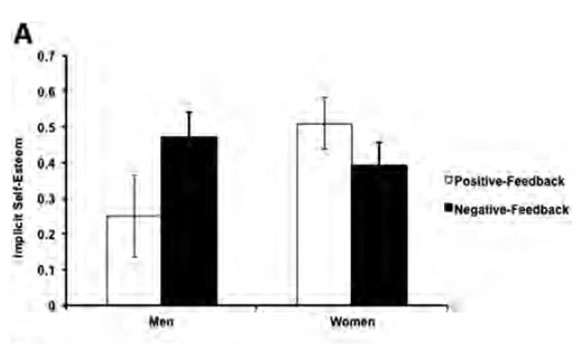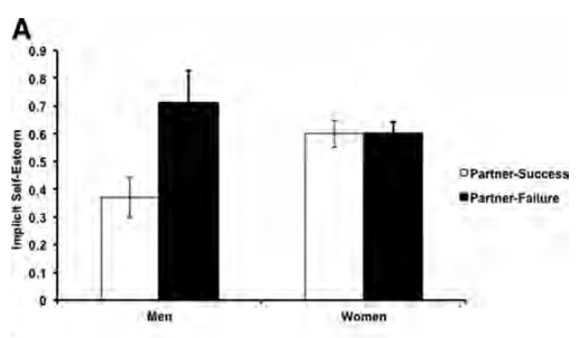In a study contending for most-depressing-research-of-the-year, psychologists Kate Ratliff and Shigehiro Oishi tested how a romantic partner’s success or failure affects the self-esteem of people in heterosexual relationships. The short story: men feel bad about themselves when good things happen to their female partners. Women’s self-esteem is unaffected. Here’s some of the data.
The vertical axis represents self-esteem. In this experiment, respondents were told that their partner scored high on a test of intelligence (“positive feedback”) or low (“negative feedback”). The leftmost bars show that men who were told that their partners were smart reported significantly lower self-esteem than those who heard that their partners weren’t so smart.

In the second condition, respondents were asked to imagine a partner’s success or failure. Doing so had no effect on women’s self-esteem (rightmost bars). For men, however, imagining their partners’ success made them feel bad about themselves, whereas imagining their failure made them feel good.

The various experiments were conducted with American and Dutch college students as well as a diverse Internet sample. The findings were consistent across populations and were particularly surprising in the context of the Netherlands, which is generally believed to be more gender egalitarian.
We’ve got a long way to go.
This post originally appeared onSociological Images, a Pacific Standard partner site.



